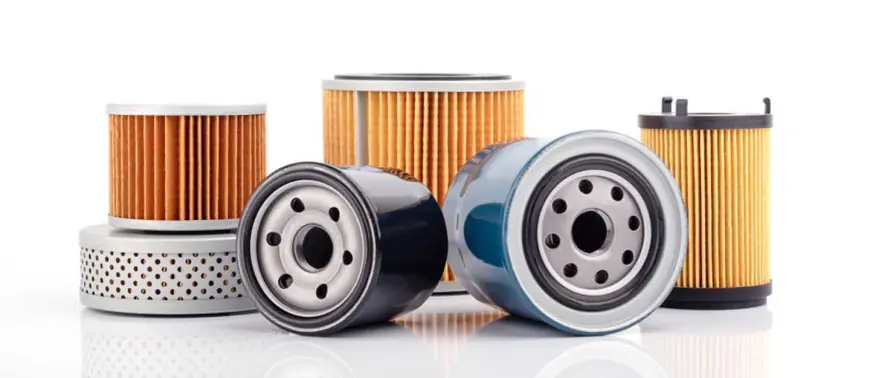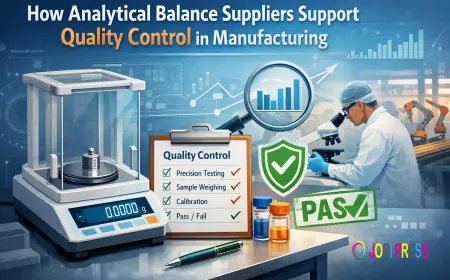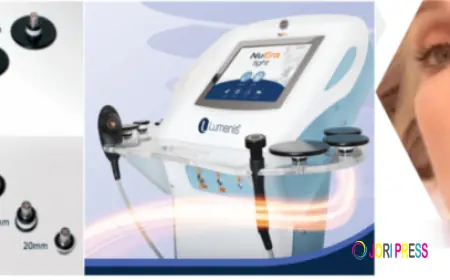Global Automotive Fuel Filter Market Growth Report 2030
Despite the numerous opportunities, the market faces challenges related to the growing complexity of automotive designs and the evolving requirements of fuel filtration systems.

Industry Key Highlights
The Global Automotive Fuel Filter Market, valued at USD 1.85 billion in 2024, is on a trajectory to reach USD 2.46 billion by 2030, growing at a CAGR of 4.94%. This growth is underpinned by a confluence of factors—heightened environmental consciousness, the push for fuel efficiency, and evolving regulations. Fuel filters, though often overlooked, are a cornerstone of automotive performance, ensuring clean fuel delivery and protecting engines from harmful contaminants.
A rising number of vehicles globally—both personal and commercial—are fueling this demand. Whether it’s modern gasoline engines or high-torque diesel powertrains, the role of fuel filters has become more complex and critical.
Market Drivers
1. Stringent Emission Norms
Governments worldwide are mandating strict emission standards to combat climate change. Regulations such as Euro 6 in Europe and EPA standards in the U.S. compel automakers to enhance fuel system performance. High-efficiency fuel filters are integral to achieving lower emissions and maintaining engine health.
2. Growing Demand for Fuel Efficiency
With soaring fuel prices and consumer awareness, demand for fuel-efficient vehicles has skyrocketed. Fuel filters contribute directly to fuel economy by ensuring optimal combustion through clean fuel flow, making them indispensable in modern engines.
3. Technological Advancements in Filtration
Modern filtration materials such as synthetic fibers, nanofibers, and multi-layer composites are being employed to enhance filter efficiency and longevity. Integration of smart sensors to monitor fuel quality and filter health is turning traditional components into intelligent systems.
4. Surge in Hybrid Vehicles
Hybrid vehicles, combining internal combustion with electric drivetrains, still rely on traditional fuel filters. The growing hybrid fleet is creating a niche demand for specialized filters that perform optimally across varied engine cycles.
5. Alternative Fuel Integration
The rising use of biofuels, synthetic fuels, and blended fuels is creating demand for filters compatible with diverse chemical compositions. Manufacturers are developing filters with enhanced chemical resistance and adaptability to prevent clogging and degradation.
Download Free Sample Report: https://www.techsciresearch.com/sample-report.aspx?cid=22011
Emerging Trends in the Automotive Fuel Filter Market
1. Smart Filters with Sensor Integration
The next-generation fuel filters are equipped with Internet of Things (IoT) features that provide real-time data on fuel quality, pressure, and filter wear. These smart filters allow predictive maintenance, improving vehicle uptime and reducing operational costs.
2. Electrification and Its Impact
While electric vehicles (EVs) do not use fuel filters, hybrid vehicles and range-extended electric vehicles continue to require them. The rise of these transitional technologies is ensuring that fuel filters remain relevant in the evolving automotive landscape.
3. Customized Solutions for Commercial Fleets
Commercial fleets, especially in logistics and construction, operate under harsh conditions. The demand for heavy-duty, long-life filters tailored for extended service intervals and extreme environments is growing rapidly.
4. Lightweight and Sustainable Materials
OEMs are focusing on lightweight filter housings made of recyclable plastics and composite materials, aligning with broader sustainability goals without compromising performance.
5. Expanding Aftermarket Landscape
A growing number of vehicle owners are turning to aftermarket options for fuel filters. Enhanced brand competition, availability, and pricing flexibility are contributing to this trend, especially in developing nations.
Market Segmentation
By Fuel Type
- Gasoline
- Diesel
Diesel filters are generally more complex and expensive due to the nature of diesel fuel, which contains more impurities. However, with the rising preference for gasoline engines in passenger cars, this segment is also witnessing significant growth.
By Vehicle Type
- Passenger Cars
- Commercial Vehicles
Passenger cars dominate in terms of volume, but commercial vehicles present higher value demand due to their rigorous operating cycles and larger engine systems.
By Sales Channel
- OEM (Original Equipment Manufacturer)
- Aftermarket
OEM filters assure compatibility and are preferred for new vehicles, while aftermarket segments are booming due to a growing second-hand vehicle market and increasing vehicle longevity.
Regional Insights
North America – Fastest Growing Market
North America, led by the U.S. and Canada, is witnessing rapid growth driven by:
- Stricter EPA regulations
- Growth in hybrid and light-duty commercial vehicle sales
- High levels of R&D investment in smart filter systems
North America’s automotive ecosystem fosters innovation, making it a hotspot for advanced fuel filter development. The adoption of alternative fuels and the booming logistics sector further boost demand.
Asia-Pacific – The Market Leader
Countries like China, India, Japan, and South Korea dominate due to high vehicle production, urbanization, and rising consumer income. The robust automotive supply chain and government support for clean mobility are also major growth contributors.
Europe – Sustainability Driven
Europe remains focused on environmental sustainability. Automakers are heavily investing in eco-friendly filtration technologies, aligning with carbon-neutral goals by 2030. Diesel vehicles, still popular in many EU countries, drive demand for high-quality diesel filters.
Competitive Analysis
The global automotive fuel filter market is highly competitive and innovation-driven. Major players are engaged in strategic alliances, mergers, acquisitions, and product differentiation to sustain market share. Below is a snapshot of key players:
Key Players
- Donaldson Company, Inc.
- Focus on heavy-duty filtration systems
- Innovations in diesel filtration
- Robert Bosch GmbH
- Broad portfolio for both OEM and aftermarket
- Smart filter systems in development
- MAHLE GmbH
- Strong presence in Europe and Asia
- High-performance filters for premium vehicles
- Denso Corporation
- Japanese leader with advanced R&D
- Compact filters for hybrid systems
- Sogefi SpA
- Specializes in lightweight and eco-friendly filters
- Champion Laboratories, Inc.
- Focuses on affordability and OEM-quality products
- Cummins Inc.
- Dominant in commercial vehicle segment
- Integrated fuel filtration modules
- Freudenberg SE
- Known for innovative composite filter materials
- Hengst SE
- Expertise in modular fuel filter systems
- Ahlstrom Oyj
- Pioneer in filter media technologies
Future Outlook
The automotive fuel filter market is projected to grow steadily as automotive technology continues to evolve. Even in an electrifying world, internal combustion engines—especially in hybrid and commercial vehicles—will remain in circulation through 2030 and beyond.
Key developments expected by 2030:
- More sensor-integrated smart filters
- Widespread adoption of biofuel-compatible filters
- Higher aftermarket penetration, especially in Asia and Latin America
- Stricter compliance mandates forcing filter redesigns
- Focus on circular economy practices—reusable and recyclable filters
The transition toward green mobility doesn't eliminate the need for fuel filters—it redefines it. Fuel filters are evolving from basic components to smart, multifunctional systems that enhance both performance and environmental compliance.
10 Key Benefits of This Research Report
- Comprehensive Market Insights: Understand market dynamics, growth drivers, and restraints.
- Segmentation Analysis: Get detailed segmentation by fuel type, vehicle type, sales channel, and region.
- Competitive Benchmarking: Identify key players and assess their strategies.
- Emerging Trends: Stay ahead with insight into upcoming technologies and materials.
- Regulatory Landscape: Understand global compliance norms influencing design and demand.
- Regional Opportunities: Discover high-growth markets like North America and Asia-Pacific.
- Investment Guidance: Make informed business and R&D investment decisions.
- Strategic Forecasts: Anticipate market size and CAGR through 2030.
- Aftermarket Intelligence: Navigate the growing role of aftermarket fuel filters.
- Risk Mitigation: Analyze potential market challenges and ways to address them.
Conclusion
The Global Automotive Fuel Filter Market is in the midst of a transformative period. With technological evolution, stricter regulations, and growing vehicle diversification, fuel filters have gone from being simple protective barriers to critical enablers of performance and sustainability.
The market offers strong opportunities for innovation, especially in filtration materials, smart monitoring, and fuel compatibility. As the global automotive industry transitions to cleaner, smarter mobility, the role of advanced fuel filters will only become more pivotal.
For manufacturers, investors, and policymakers, this report provides the actionable insights and strategic foresight needed to navigate and succeed in the evolving fuel filter landscape.
Contact Us-
Mr. Ken Mathews
708 Third Avenue,
Manhattan, NY,
New York – 10017
Tel: +1-646-360-1656
Email: [email protected]
Website: www.techsciresearch.com
What's Your Reaction?
 Like
0
Like
0
 Dislike
0
Dislike
0
 Love
0
Love
0
 Funny
0
Funny
0
 Angry
0
Angry
0
 Sad
0
Sad
0
 Wow
0
Wow
0

















































